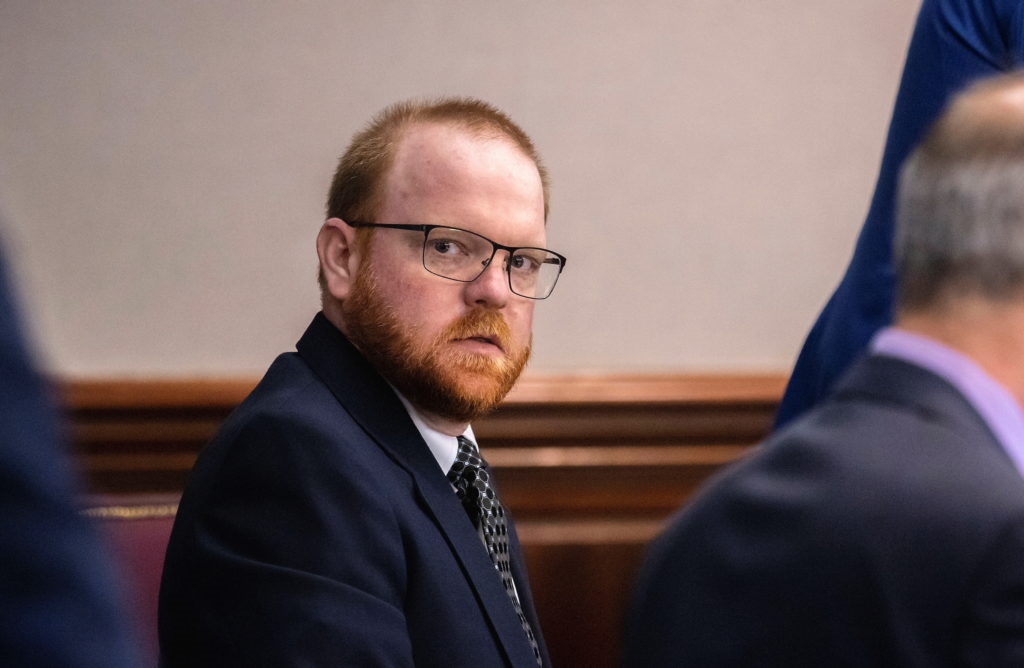Ahmaud Arbery murderers sentenced to life, no parole
Nearly two years after his murder, Ahmaud Arbery gets justice with his murderers sentenced to life in prison without parole.
-

Travis McMichael, one of the murderers sentenced to life for the killing of Ahmaud Arbery
A jury found on Friday Travis and Gregory McMichael, father and son respectively, and their neighbor, William Bryan, guilty of murdering African-American jogger Ahmaud Arbery in February 2020.
The McMichaels were sentenced to life in prison without the possibility of parole.
The neighbor, Bryan, also received the maximum penalty for life; however, he was offered the possibility of parole in 30 years' time.
The three white men had chased and brutally murdered 25-year-old Arbery in south Georgia, and they had been convicted on various charges in November, including felony murder.
The murderers pursued Arbery, who was jogging at the time, and the son brutally shot him at close range using a shotgun. The whole case was unprovoked, yet the father and son claimed they acted upon thinking Arbery was a burglar; however, no criminal evidence whatsoever verifies that.
Although William Bryan did not commit the crime himself, which is the reason behind him having a chance at parole, he chased down Arbery with his neighbors and recorded the crime on his phone.
The judge handling the case ruled that while Bryan had participated in the ambush, he "demonstrated grave concerns that what had occurred should not have occurred" after the fact.
In contrast, the judge said the father-son duo had not shown remorse or empathy for their victim, not granting them the possibility of parole.
-

25-year-old Ahmaud Arbery's crime? Jogging while being black.
Judge Timothy Walmsley cited the murderers' "callous" words and actions captured on video as the reason behind the severe sentences he gave them.
The trio tried to argue that their actions were in "self-defense" due to their belief Arbery was a burglar, but the prosecutors said race was a prominent factor.
The judge underscored that taking the law into one's hands was "a dangerous endeavor," while scolding the trio by saying, "In assuming the worst in others, we show our worst character."
He heavily empathized with the victim, describing the killing as a "chilling, truly disturbing scene," telling the court, "When I thought about this, I thought from a lot of different angles. And I kept coming back to the terror that must have been in the mind of the young man running through Satilla Shores."
The trio's three defense attorneys had suggested they would be moving to appeal the verdicts, but this is not the only suit against the murderers. The three will be facing a federal hate crimes trial next month on the basis that they targeted Arbery over his race.
Arbery's mother has also filed her own civil lawsuit against the men and against law enforcement officials who had declined to arrest them.
The defense tried to argue that the murderers were not bad men, but rather good men who had committed "one bad act," but the prosecution reminded them of what they had done to Arbery. "Travis McMichael said this was the worst day of his life. Well, how did that work out for Ahmaud Arbery?" lead prosecutor Linda Dunikoski asked.

 3 Min Read
3 Min Read








